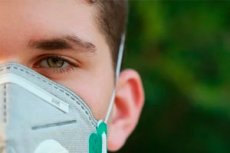The issue of the production of an intranasal anti-coronavirus vaccine is being considered
Last reviewed: 12.03.2022

All iLive content is medically reviewed or fact checked to ensure as much factual accuracy as possible.
We have strict sourcing guidelines and only link to reputable media sites, academic research institutions and, whenever possible, medically peer reviewed studies. Note that the numbers in parentheses ([1], [2], etc.) are clickable links to these studies.
If you feel that any of our content is inaccurate, out-of-date, or otherwise questionable, please select it and press Ctrl + Enter.

Employees of the British University of Lancaster have already come close to creating an anti-covid vaccine not of an injectable, but of an intranasal type.
Preliminary studies of the new drug in animals have shown a reduction in symptomatic manifestations of the disease and blocking the transmission of viral infection.
Scientists vaccinated rodents with a two-stage administration of the drug and found that hamsters acquired complete protection against lung infection, inflammation and other painful manifestations that develop after infection with the COVID-19 virus .
It is noteworthy that the two-stage administration of the intranasal preparation resulted in a significant reduction in the spread of the virus from the respiratory system of rodents. This may mean that the vaccine is able to contain the pathogen in the area of its application. It turns out that if the drug is injected into the nasal cavity, it is possible not only to prevent infection, but also to block viral transmission, in order to stop the pandemic spread of the infection.
A specialist in virology, Professor Munir personally supervised the course of the experiment. He noted the following: "Our research project shows that the installation of local immune protection in the field of introduction of coronavirus into the body will not only reduce the degree of clinical manifestations, but also prevent the pathogen from moving from a sick person to another, healthy person."
The studied intranasal drug is based on an avian virus, the causative agent of pseudo-plague, or Newcastle disease. This virus is capable of reproducing in the human body, but does not harm it. Researchers have managed to redirect the Newcastle disease virus to produce spike proteins of the coronavirus, which causes the body to begin to implement an immune response against the COVID-19 pathogen.
Intranasal administration of the drug caused the production of antibodies in rodents directed against several variations of the coronavirus infection, indicating that extensive protection is likely to be created.
Leading researcher at Lancaster University, Dr. Rycroft-Malon, expressed confidence that scientists have managed to take an important step in the prevention of COVID-19 disease, which will stop the pandemic spread of infection around the world.
Scientists note that intranasal vaccination is more accessible, tolerates transportation well and, most likely, can be used even in childhood. The regular appearance of new coronavirus strains indicates the need to intensify work on vaccines and explore all possible ways to “curb” the infection.
The intranasal vaccinal spray has a number of advantages, as it is easy to administer, greatly enhances local immune defenses, and can be an excellent alternative for individuals who have contraindications to injectable vaccination.
The results of the work are published on the pages of iScience
